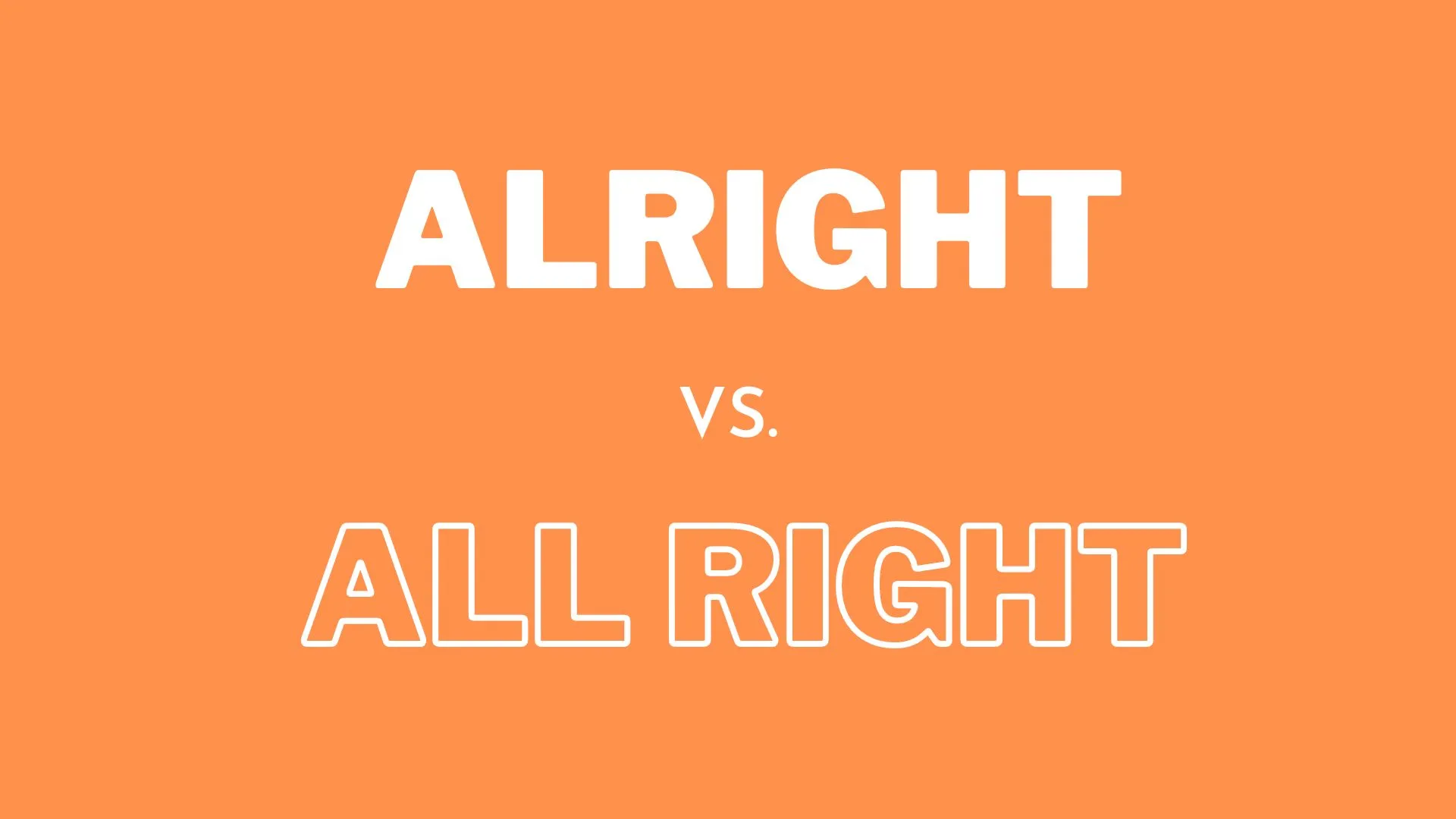

Alright vs all right – what’s the difference? English teaching tells us that “all right” is the only appropriate way to write the word, but the less formal “alright” is becoming increasingly more common in written publications.
|
|
Alright |
All Right |
|
Usage |
Both “alright” and “all right” are acceptable in American English. |
|
|
Appropriate for informal use in text messages, emails to friends or co-workers, or in fictional writing in colloquial dialogue. |
Appropriate for formal use, such as in business letters, academic papers and professional reports. |
|
All right is a term that can mean a few different things. It can be used as an adjective, adverb or exclamation.
All right can mean:
Both spellings of the word “all right” and “alright” are considered acceptable in American English, and both variations of the word have the same meaning.
However, “all right” is considered appropriate for formal written correspondence, and it is the most widely used spelling for published material. The spelling “alright” is considered informal and appropriate for written correspondence between friends, co-workers and family.
Utilizing “alright” and “all right” is 100% acceptable in most cases. However, a few of the times when you may want to choose “all right” instead include:
A few examples of when to use these words are:
You can also use these words interchangeably in a non-formal setting:
If you find a phrase like the following, it can become very confusing: “The answers were all right” cannot be “The answers were alright.” Why? One indicates that all answers were either:
In this one example, all right would mean the same as alright, although alright wouldn’t mean that all of the answers were correct.
If you’re learning English as a second language, your teacher will be happier if you use “all right.”
Although both variations of the term share the same meaning, using “all right” is always a safe bet. In the worst-case scenario, you will sound more formal than you intended.
Teaching and learning English are both complicated. Words, such as “all right” and “alright” can confuse native speakers and people still learning the language. However, when you learn the true definition of these words and their use cases, it will make teaching or learning English much easier.
Date: 2022-11-01 10:04:49
 Rob
Rob